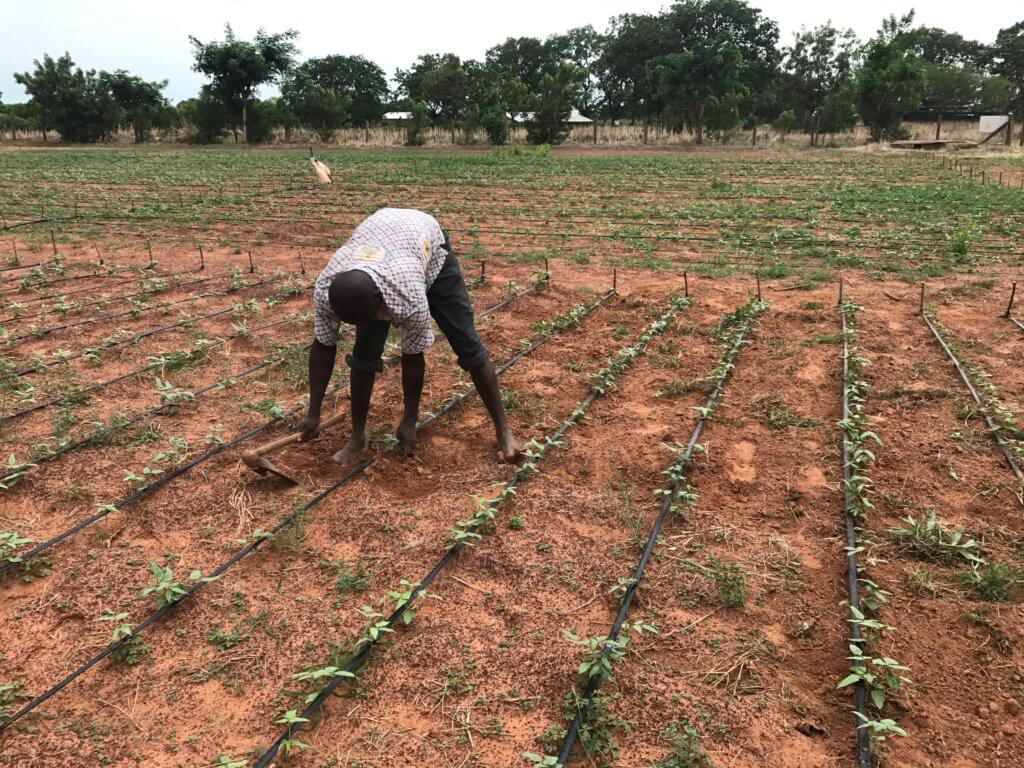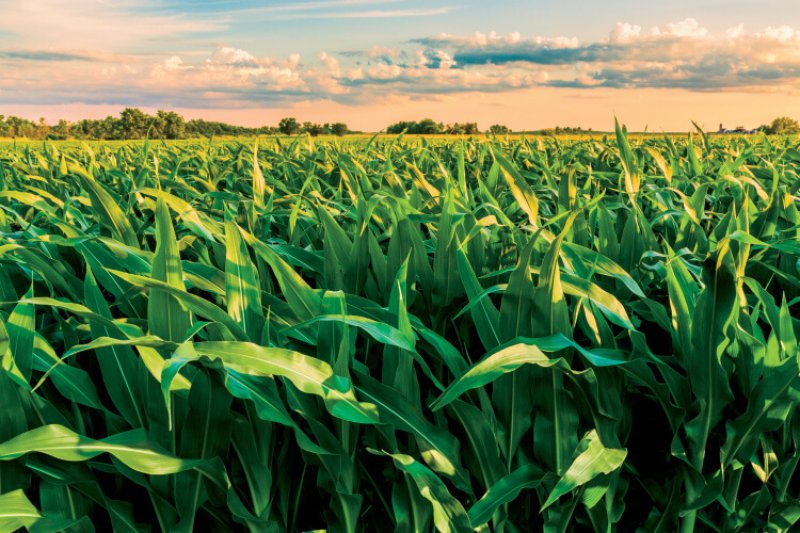This lopsided conversation has had and will continue to have severe consequences for society. Farmers’ voices need to be heard; their stories about the serious problems they face have to be told. The effects of climate change are growing more severe, especially in developing countries. Under such circumstances, access to the latest technologies, including GMO and gene-edited crops, could drastically improve the ability of farmers all over the world to sustainably and profitably feed themselves, their families and societies.
I spoke to several farmers from all over the world at the Global Farmer Roundtable, hosted by the International Maize and Wheat Improvement Center (CIMMYT), who made a powerful case for biotech crops, and explained why consumers, activists and politicians should consider why technology is so vital to sustainable farming.
Mexico
Gina Gutierrez is a fifth-generation dairy farmer from Mexico, growing corn, barley, peas, triticale and ryegrass for silage to feed her 480 milking cows, 380 calves and heifers and 60 bull calves. Declining milk prices and growing operational costs in recent years have hit her profit margins hard. Tools like genetically modified (GM) crops would alleviate some of this undue financial strain. But due to strict Mexican regulations, Gina can’t grow these biotech plants, and there are no signs that the situation will change anytime soon. If she had a choice, Gina told me, things would be different:
If we could have access to them (GM crops), we would definitely be using them so we could take advantage of the benefits they were designed to provide. We feed our cows a mixed ration made from soy meal and corn, and they come from the US—so they are GM. We import GM crops and are allowed to feed them to our cattle, and we eat GM corn as well, but we aren’t allowed to plant it. The Mexican government often speaks about being self-sufficient, but that’s not going to happen if we don’t catch up with the new tools out there. In the meantime, I’m just glad that we have access to trade.
We would also absolutely love to incorporate the gene in our livestock’s genetics that prevents horns from growing, because that makes farming safer for us and the cows.

I asked Gina what she thought about so-called “Facebook farmers,” the anti-GMO activists prominent on social media who claim to speak on behalf of farmers:
It very frustrating that they have so much influence when they have never stepped on the field, spent a whole night watching out for one animal that got sick or is in labor; suffered after losing a crop during a storm or because it didn’t rain enough. Asking them to understand these situations is asking for a miracle, and expecting them to accept and embrace the science behind the technology is just useless, yet I still hope they do.
But you know what? I hope they never go hungry, never suffer. I hope they remain safe within the comfort of their warm and dry houses, because I don’t think they could face all the challenges farmers go through to feed a growing population. I hope they never have to hope for a tool that could help them and those around them keep their livelihood. Their voices are loud, but I don’t think their muscles and minds are strong enough to wake up every day and tend to the herd and survive a day of harvest.
Farmers are strong and resilient, and I hope that in the near future, our work is valued and more people can understand where we’re coming from and why we do what we do. People need to trust us, trust science and know that we are not improvising—we are feeding the world.”
India

Increasingly unpredictable weather also poses a serious threat to agriculture, says Gaytri Devi an Indian grower who was raised on a family farm in her small village, where she still grows wheat and rice today. Heavy rainfall and drought contribute to increasing labor and fertilizer costs and cut into her yields.
Devi doesn’t cultivate GM crops for the time being; there are no biotech wheat or rice varieties bred for difficult climates currently available to her, though both are being developed. If and when these become available, she would happily grow them, as well as varieties developed with new breeding techniques such as CRISPR-Cas9—as long as they don’t increase her costs. She says she clearly sees the value of mitigating climate change with technology:
To deal with climate change, we need technology that can help us grow food crops in a short time. And with the growing population, we need biotechnology to produce more food so that we can fulfill the global demand. But at the grassroots level, we need more awareness among farmers so that they can adopt these innovations. The media’s role is very important to create this awareness.
Nigeria
Patience Koku is a Nigerian farmer and vocal advocate for access to agricultural technologies. For the past 12 years, she has cultivated corn, cowpea, soybean and rice. But she often sees poor yields due to weeds, pests and low-quality seeds and inputs (fertilizers, pesticides).

Patience is waiting anxiously to plant her first crop of insect-resistant Bt cowpea and cotton this year. These genetically engineered plants have a built-in defense against pests that take a devastating toll on farms all over the world, thus threatening the livelihoods of growers and their families. Koku knows firsthand how severe the threat is.
The Nigerian farmer and technology advocate is also open to cultivating crops developed through new breeding techniques, as long as they are shown not to pose a risk to human health or the environment. She says critics of the technology should stop trying to speak for growers in developing countries, who have their own voices:
I am not happy about this. These people have no direct connection with what really happens on the farm and so don’t know what farmers need. Farmers should be allowed to advocate for themselves. Farmer voices, not proxy voices, are the ones that matter.
She is especially frustrated with these self-appointed activist-spokespeople because of the threat posed by climate change:
We need every tool in the toolbox to fight climate change. Farming Techniques such as no-till need to be promoted in Nigeria. Drought-resistant and other climate-resilient [crop] varieties are also needed. Our rainfall patterns have changed and our planting windows have been reduced. All hands–government, farmers, media, consumers, scientists and industry–need to be on deck to help us cope with the effects of global warming.
Brazil
Yara de Geus cultivates GM soybean and corn in the southern part of Maranhão State in Brazil. She is currently taking over the family farm under her father’s guidance, and she says biotechnology is essential to helping her run a profitable operation:
For us, farming in tropical conditions, it is vital to use these technologies to apply a rational and efficient pest control program, ensuring better yields and the quality of our product.
De Geus believes new breeding techniques are amazing technologies that will enhance plant traits and help the crops she grows adapt to the specific conditions on her farm. Commenting on the activists who disseminate misinformation about biotechnology, she says:
I think they are irresponsible and clueless about what farming and food production entails. Unfortunately, their loud ignorance influences people into thinking that farmers using technology are doing something bad.
De Geus added that technology helps farmers grow more food with a smaller environmental impact. If anything, they need to be more informed about the tools at their disposal:
Farmers need to prepare. We need to be aware of the latest research, be informed and share information among ourselves. We need to use soil conservation tools combined with new [crop] varieties adapted to minimize climate change impacts, resist new diseases, tolerate pests and optimize nutrient use.
Conclusion
Farmers are the basis of any advanced society, and it’s crucial that we understand their experiences. Their work is one of the key reasons we have food on our tables every day. The least we can do is recognize their important role and respect their capacity to make informed choices. At the end of the day, the goal of all farmers is to produce enough food to feed everyone—and we all benefit from that.
This article originally appeared on the GLP on March 10, 2020.
Luis Ventura is a biologist with expertise in biotechnology, biosafety and science communication, born and raised in a small town near Mexico City. He is a Plant Genetic Resources International Platform Fellow at the Swedish University of Agricultural Sciences. Follow him on Twitter @luisventura































